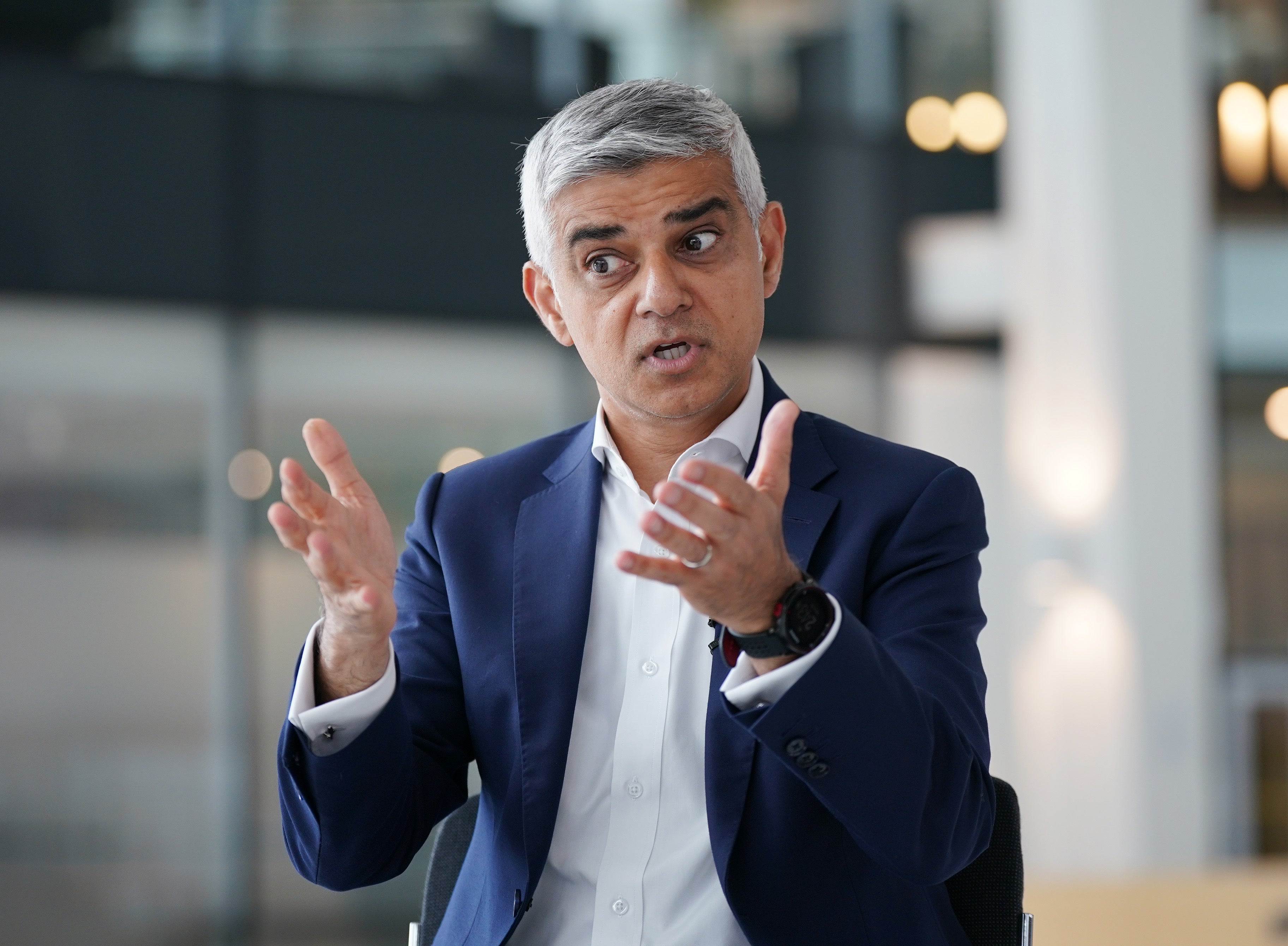Sadiq Khan ‘deeply concerned’ after 71% of UK monkeypox cases seen in London
The Mayor of London has written to the Health Secretary urging him to combat the spread of the virus.

Your support helps us to tell the story
From reproductive rights to climate change to Big Tech, The Independent is on the ground when the story is developing. Whether it's investigating the financials of Elon Musk's pro-Trump PAC or producing our latest documentary, 'The A Word', which shines a light on the American women fighting for reproductive rights, we know how important it is to parse out the facts from the messaging.
At such a critical moment in US history, we need reporters on the ground. Your donation allows us to keep sending journalists to speak to both sides of the story.
The Independent is trusted by Americans across the entire political spectrum. And unlike many other quality news outlets, we choose not to lock Americans out of our reporting and analysis with paywalls. We believe quality journalism should be available to everyone, paid for by those who can afford it.
Your support makes all the difference.London Mayor Sadiq Khan has warned the Government to urgently tackle the spread of monkeypox after 71% of recent cases have been reported in the capital.
Between May 6 and July 11 this year, there have been 1,735 confirmed monkeypox cases in the UK, and 1,229 of these were Londoners, according to UK Health Security Agency (UKHSA) figures.
This compares with only seven cases recorded in the UK between 2018 and 2021.
Mr Khan has said he is “deeply concerned” about the spread, and has written to the recently appointed Health Secretary, Steve Barclay, urging him to act.
This follows calls by health charities including the National Aids Trust and the Terrence Higgins Trust for the NHS and the Department for Health and Social Care (DHSC) to combat the outbreak as soon as possible.
On Thursday evening, Mr Khan said: “Today, I have written to the Health Secretary over the growing number of monkeypox cases in London and the UK.
“London is currently seeing the highest rate of infection and I’m deeply concerned that reported monkeypox cases have doubled in less than a week.
“If we have learned anything from the Covid-19 pandemic, it’s that early action and coordination is vital to get ahead of the curve.
“The Government must rapidly ensure that there’s a coordinated and resourced approach to tackle the threat faced by monkeypox now.
“I have let the Secretary of State know that City Hall will do everything it can to ensure Londoners have the information and support they need.”
Most people affected by the virus during this year’s outbreak have been men, at 99.4%, according to the UKHSA.
For confirmed cases where gender information was available, 1,633 were men and only 10 women.
Sexual health charities have warned that the increased burden to their services caused by monkeypox also risks jeopardising the Government’s target of ending new HIV cases in the UK by 2030.
Monkeypox is related to smallpox and cases are usually found in West and Central Africa, with the virus not often spreading elsewhere.
The disease, which was first discovered in monkeys, is usually mild but can cause severe illness in some cases.
Most patients experience a fever, body aches, chills and fatigue, but some may develop a rash and lesions on the face and hands that can spread to other parts of the body.
The DHSC said it is urging people to look out for any new ulcers or blisters, particularly if they have had close contact with a new partner.
A spokesperson for the department said: “We are providing more than £3.4 billion to local authorities through the Public Health Grant, enabling them to invest in essential frontline services including sexual health services.
“The UK Health Security Agency is asking people to be alert to any new spots, ulcers or blisters on any part of their body, particularly if they’ve had close contact with a new partner.
“If people think they have these symptoms, they should avoid close contact with others and call NHS 111 or their local sexual health centre – but are encouraged to phone ahead before attending.”